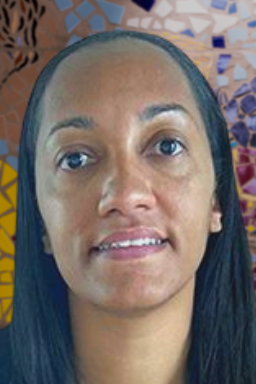GCSW Student Selected for The Congressional Research Institute for Social Work and Policy's (CRISP) Leadership Team

May 5, 2022
(HOUSTON, TX) - MSW Student Stephani Brodi was recently selected to serve as a team member on The Congressional Research Institute for Social Work and Policy's (CRISP) Leadership Team and spoke on the "Young Social Workers Speak" panel.
CRISP is committed "to expanding social workers' engagement with Congress and the federal government, bridging social workers and the federal government to ensure research is known to federal policymakers, and expand opportunities for students."
We spoke with Stephanie to learn more about why policy and social work go hand-in-hand and how this opportunity presented a chance to discuss personal and professional aspirations.
---
Name: Stephanie Brodi
Congratulations on being selected for CRISP's Leadership Team. How did this opportunity come about, and what has the experience been like thus far?
Dr. Suzanne Pritzker recommended me to Dr. Charles Lewis, who serves as the Director of CRISP. The overall experience was terrific.
The opportunity to represent the GCSW and the University as a member of the CRISP Leadership team was great. It presented me with a chance to better gauge and discuss the views of social work students from around the country and allowed me insight into their views on social work and public policy.
You were invited to speak on a panel titled "Young Social Workers Speak" to bring light to how social workers can help to save democracy. Why is it important that social workers be at the forefront of this conversation, and what changes do you think are needed to preserve our democracy?
Social workers need to be at the forefront of preserving democracy because it involves people's dignity, self-worth, and self-determination. The discipline of social work is the only one that looks at the person in their environment, so we carry a unique perspective when addressing the rights of people because we study the importance of the whole person. With this knowledge, we can help preserve democracy with a combination of resources and advocacy. Social workers are taught to network and collaborate with people from other disciplines, and we often find ourselves working with people who are not social workers. With these tools and skillsets, we can begin to pull resources to educate people on the processes of democracy and action steps that can be taken through advocacy to be a more inclusive and expansive democracy.
Public Policy and Social Work are two fields that have overlapping interests. Why do you think this is, and how has your social work background informed your public policy views?
I come from a social work background with an interest in Public Policy. I began this journey when I began working in the social service field and recognized that the work I was doing was directly connected to policy. I believe that furthering my knowledge of public policy is critical for any advancement in social work practice.
What do you hope to achieve once you graduate from the GCSW?
I hope to one day become an elected official. I seek to find a mentor who can understand my social work background and politics.
We are back in person at the GCSW. What has been a highlight of your experience thus far?
Face-to-face networking has been a significant push forward for me and my education. Seeing people in person and having face-to-face interactions and discussions has been great, especially when considering the past few years and their challenges to education.
The GCSW hopes to achieve social justice at all levels. How do you believe public policy and social work fit into this vision?